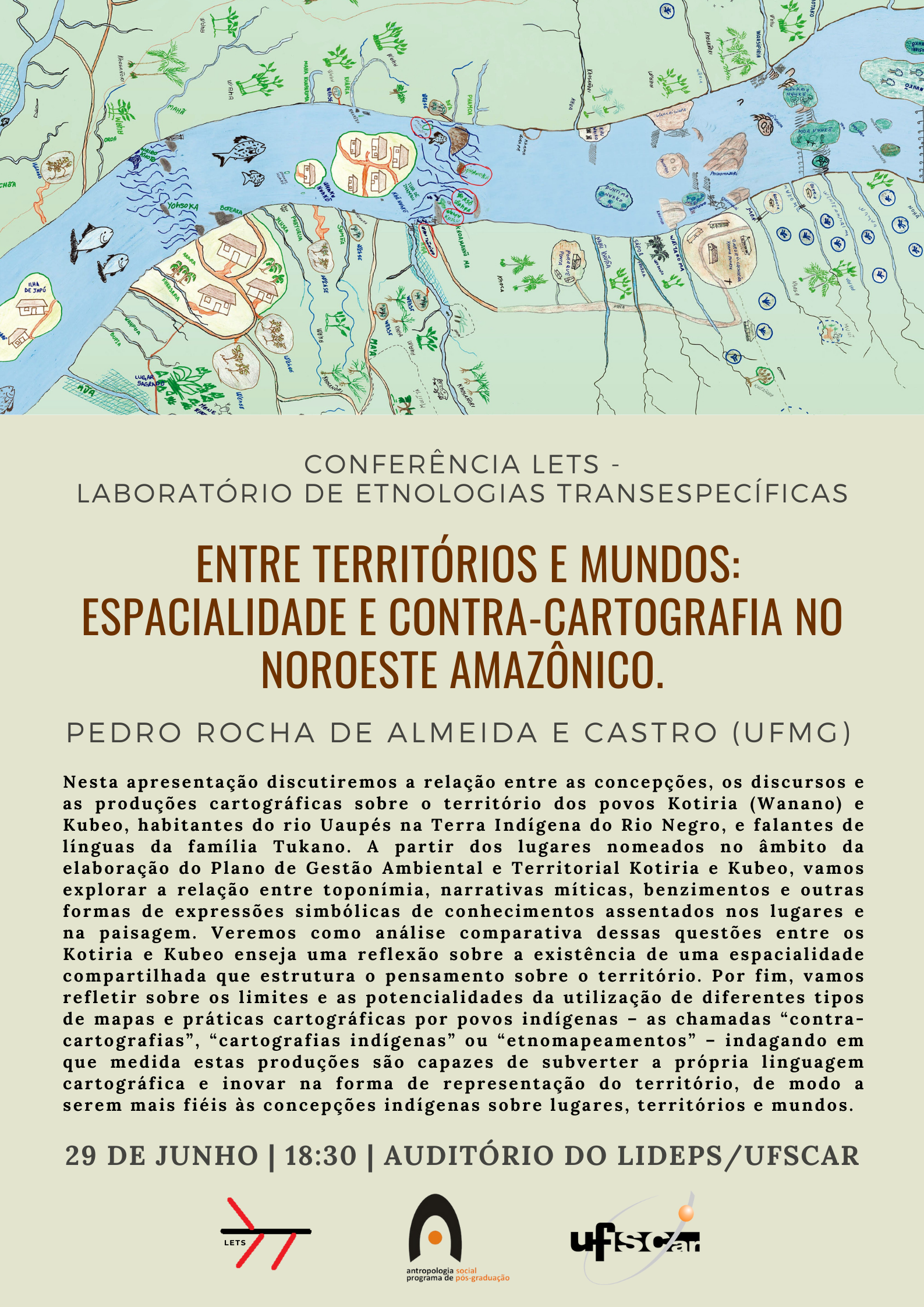In this presentation we will discuss the relationship between the conceptions, discourses and cartographic productions on the territory of the Kotiria (Wanano) and Kubeo peoples, inhabitants of the Uaupés River in the Rio Negro Indigenous Land, and speakers of languages of the Tukano family. From the places named in the scope of the elaboration of the Kotiria and Kubeo Environmental and Territorial Management Plan, we will explore the relationship between toponymy, mythical narratives, blessings and other forms of symbolic expressions of knowledge settled in places and in the landscape. We will see how a comparative analysis of these issues between the Kotiria and Kubeo gives rise to a reflection on the existence of a shared spatiality that structures thinking about territory. Finally, we will reflect on the limits and potentialities of the use of different types of maps and cartographic practices by indigenous peoples – the so-called “counter-cartographies”, “indigenous cartography” or “ethno-mapping” – asking to what extent these productions are capable of to subvert the cartographic language itself and innovate in the form of representation of the territory, in order to be more faithful to the indigenous conceptions about places, territories and worlds.
LETS Conference (Laboratory of Transspecific Ethnologies) - Between territories and worlds: spatiality and counter-cartography in the Northwest Amazon, with Pedro Rocha de Almeida e Castro (UFMG).
Start
Local
LIDEPS/UFSCar Auditorium


